
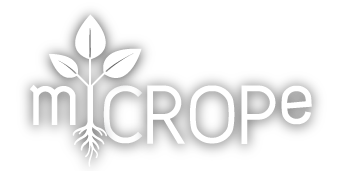
INTERNATIONAL SYMPOSIUM
MICROBE-ASSISTED CROP PRODUCTION-
OPPORTUNITIES, CHALLENGES & NEEDS
NOV. 23 – 25, 2015
SCHLOSS SCHÖNBRUNN TAGUNGSZENTRUM
APOTHEKERTRAKT |
VIENNA, AUSTRIA

INTERNATIONAL SYMPOSIUM
MICROBE-ASSISTED CROP PRODUCTION-
OPPORTUNITIES, CHALLENGES & NEEDS
NOV. 23 – 25, 2015
SCHLOSS SCHÖNBRUNN TAGUNGSZENTRUM
APOTHEKERTRAKT |
VIENNA, AUSTRIA
This is the archived site of a previous miCROPE symposium! You can access the current/upcoming symposium here
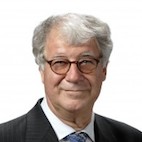
Ben Lugtenberg studied chemistry in Utrecht (NL); major in lipid biochemistry, minor in microbiology. PhD at Utrecht University (synthesis of peptidoglycan in Escherichia coli and how various antibiotics interfere with this synthesis). This included a stay in the biochemistry lab in Cambridge (UK) with Dr Peter Reynolds. After a Postdoc at the University of Connecticut Health Center (USA) with Dr Mary Jane Osborn, he started his own research group at Utrecht University (Composition and Biogenesis of the Outer Membrane of E. coli). From 1983 until his official retirement in 2006 he was professor of Plant Microbiology at Leiden University, NL. The work of his group focused on (i) the mechanism of the induction of nodule formation in pea by Rhizobium bacteria, and (ii) control of plant root diseases by (mostly) Pseudomonas bacteria.
He served as Advisory Board Member of the Max-Planck-Institute for Plant Breeding in Cologne, DE, and of the German Microbial Genomics Network coordinated by Dr Alfred Pueler. He was President of the International Society of Molecular Plant-Microbe Interactions, Member of the INTAS Board of Scientists (Brussels; cooperation EU with former Sovjet States). He was consulted by several companies including Astra, Barenbrug, DSM, Dupont, Grodan, Groen Agro Control, Incotec, Heineken, Koppert Biological Systems, Nitragen (later Novozymes, now BioAg) and Norsk Hydro.
He was elected as Foreign Member of the Russian Academy of Agricultural Sciences and received the Arima Award from the International Union of Microbiological Societies “for outstanding contributions to Applied Microbiology”.
Choong-Min Ryu is a principle research scientist in Korea Research Institute of Bioscience and Biotechnology, South Korea. After completing his Ph. D in Auburn University, USA where he discovered that bacterial volatiles elicit plant growth promotion and plant immune responses, he moved to The Samuel Robert Noble Foundation for postdoctoral position. His research topics include: 1) Field application of biological control agents such as plant growth-promoting rhizobacteria and foliar beneficial bacteria, 2) bacterial volatile-mediated plant health improvement, 3) Plant social networking system on insect-plant-microbe tritrophic interactions, and 4) Functional microbiome mining for improving plant health. Choong-Min is currently serving as editorial members of Plant and Soil, and PLOS One and a review editor of Frontiers in Plant Science.

Professor Chris Franco lead a multinational pharmaceutical drug discovery team screening actinobacteria for therapeutic drugs and discovered over a dozen patent families. He is now at Flinders University, Adelaide, and heads the Australian Grain Research and Development Corporation’s Beneficial Microbes Project where he has been a pioneer in the isolation and application of endophytic actinobacteria to improve agricultural productivity. He has developed selected actinobacterial strains as effective reliable inoculants for the broadacre cereal industry. For his efforts he was awarded an Australian Museum Eureka Award for “Sustainability of Grain Growing”.
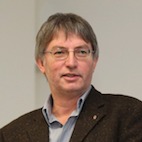
Since 1987 Dr. Falko Feldmann worked in universities, industry, administration and civil societies. The main connecting idea between all research topics was to increase applicable knowledge to afford benefits for producer and consumer with respect to environmental equilibration, food quality, life standard and social situation. The design of mixed cropping systems and diverse technology transfer projects related to useful plants reflect this idea.
Production of healthy useful plants was understood as the result of the integration of complex biological, ecological and socio-economic variables and pre-conditions .
Consumer oriented measures of agricultural performance features have been put in the context of common agricultural practices and developments recommended as Best Agricultural Practices (BAP) and Best Management Practice .
The favorite research topic has been related to symbiont technology. Arbuscular mycorrhizal fungi have been prepared for use in phytomedicine and the effects tested.
Recently he is co-ordinator of the registration affairs of the Julius Kühn-Institute, Federal Research Centre for Cultivated Plants, Germany. He is responsible for the coordination of the scientific evaluation of the efficacy of plant protection products and their active ingredients for national and EU authorisation purposes including the production of consultation reports for crops and forestry. He is involved in the commentation process of European guidance documents for assessing plant protection products and active ingredients.
Besides that, Dr. Falko Feldmann is Managing Director of the German Scientific Society for Plant Protection and Plant Health and convenor of several series of scientific meetings like the annual conference Plant Protection and Plant Health in Europe, the biannual German Plant Protection Congress and the International Urban Plant Conferences or the triannual International Reinhardsbrunn Symposium (Fungicides). For details see www.phytomedizin.org.

Gabriele Berg obtained her diploma in biology (ecology) from Rostock University (Germany) in 1986 and her Ph.D. degree in microbiology from the same university. She spent one year (1987) at the Ernst-Moritz-Arndt-Universität in Greifswald to study biotechnology. In 2003 she got a Heisenberg grant from the DFG (Deutsche Forschungsgemeinschaft) and became full professor in environmental biotechnology at Graz University of Technology (Austria) in 2005.
Her research interests are focused on plant-associated microorganisms, especially to understand their structure, function and interaction with plants and pathogens. Another focus is to translate the results into new biotechnological concepts for our environment, e.g. for biological control of plant and human pathogens. Results have published in more than 150 peer-reviewed papers and in several patents.
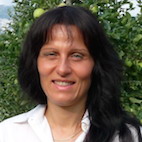
Ilaria Pertot is a Senior researcher and Head of the Department of Sustainable agro-ecosystems and bioresources at Fondazione Edmund Mach, S. Michele all’Adige, Italy (www.fmach.it). Her key qualifications and research experience are: epidemiology and biocontrol of diseases of apple, grape, berries and some horticultural crops. Her most recent works focus on development of microbial biocontrol agents, evaluation of their side effects in the environment, mechanisms of plant self-protection, plant microbe interactions including endophytes and effect of climate on biocontrol agents’ survival and activity. Since 2001 she is contract professor at the University of Trento (courses on grape pathology and biopesticides). She was and is involved in several national and EU research projects on sustainable plant protection and reduction of pesticide use. She currently coordinates the 7th FP project INNOVA on innovative bio-based pesticides to minimize chemical residue risk on food. She is vice-president of the International Organisation for Biological and Integrated Control (IOBC-wprs).

Jeroen Meeussen is a plant pathologist by training. Since October 2010 Jeroen Meeussen is working as a seconded national expert for the European Commission in DG SANTE (Unit E3, pesticide sector). In this respect he is working on the implementation of Regulation (EC) No 1107/2009. Among other topics he is dealing with issues related to renewal, candidates for substitution, minor uses and low risk. Before joining the Commission he worked as EU-coordinator for plant protection products within the Dutch Board for the Authorisation of Plant Protection Products and Biocides (Ctgb). He has already more than 25 years of experience in this field.
Within the OECD (Organisation for Economic Co-Operation and Development) Jeroen Meeussen chairs the Biopesticides Steering Group.
Jos Raaijmakers is head of the Microbial Ecology department of the Netherlands Institute of Ecology (NIOO) and Professor of Microbial Ecology at the Institute of Biology, Leiden University, Netherlands. The research program of the department aims to understand: i) the mechanisms that shape microbial communities and microbial activities in terrestrial and aquatic ecosystems, ii) the role of microorganisms in ecosystem functioning, and iii) patterns in the assembly and dynamics of microbiomes associated with plants and other eukaryotes. More specifically, rhizosphere research in the Microbial Ecology department focuses on how microorganisms (bacteria, fungi) affect plant growth, development and health. Specific emphasis is given to the genetics and natural functions of microbial metabolites in soil and rhizosphere environments.

Dr. Joseph W. Kloepper has been professor of Plant Pathology at Auburn University, Auburn, Alabama received BS and MS degrees in plant pathology at Colorado State University and the Ph.D. degree at the University of California Berkeley where he studied beneficial bacteria and coined the term PGPR. Dr. Kloepper was assistant professor at UC Berkeley for two years and then worked on development of microbial inoculants for agriculture in industry for 6 years, including 4 years in Canada. Since 1989, Dr. Kloepper has been professor of plant pathology at Auburn University, Auburn, Alabama. His research continues to focus on the use of PGPR for biological disease control and for multiple aspects of plant growth promotion.
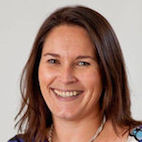
Linda Johnson is the Science Team Leader for the Plant-Fungal Interactions team of AgResearch in Palmerston North, New Zealand.
In her role as Science Team Leader, she oversees a multi-disciplinary research team with expertise in plant-microbe interactions, with a primary emphasis on understanding and utilising endophytic fungi to add value to New Zealand’s agricultural industries.
Linda is a fungal molecular biologist and a key area of her research focuses on elucidating the molecular mechanisms governing compatibility between Epichloë endophytes and their temperate pasture or cereal grass hosts.
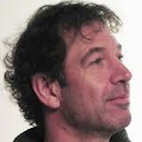
Marc Ongena has a doctor in Biochemistry at the University of liège and did a post-doc at the University Laval, Quebec city in the laboratory of Prof. Richard Bélanger. He is currently the senior research associate at the FNRS (National Funds for Scientific Research in Belgium) leading a research group within our MiPI (Microbial Processes and Interactions) lab in Gembloux Agro-Bio Tech (Faculty of the University of Liège). He has a global interest for microbial ecology but with special emphasis on molecular mechanisms governing biocontrol-related plant host-microbe interactions. His Research is conducted on several plant-beneficial rhizobacteria to identify new metabolites involved in biocontrol and to understand their mechanisms of action as antimicrobials and as elicitors of plant immunity.

Prof. Sebastian Håkansson is leading the research group "DOM - Microbial formulation and stabilization" at the Department of Microbiology at the Swedish University of Agricultural Sciences (SLU) in Uppsala, Sweden where he is also affiliated with the Centre for Biological Control (CBC). His expertise covers a range of microbial formulation and stabilization approaches for a variety of applications such as biological control, bioremediation and probiotics. The basic science involved concerns microbial stress physiology and the physical chemistry of sugar glasses and their impact on cell survival. He also has an extensive background in cell and molecular biology from Umeå University and Washington University in St. Louis, USA.”
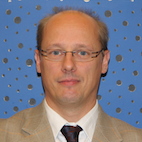
Prof. Stéphane Declerck is head of the Laboratory of Mycology of the Earth and Life Institute of the Université catholique de Louvain, Belgium and the director of the mycothèque de l’Université catholique de Louvain (BCCM/MUCL), a fungal repository hosting 30 000 living filamentous fungi, yeasts and arbucular mycorrhizal fungi. He also leads the Glomeromycota in vitro collection (GINCO), the world largest collection of arbuscular mycorrhizal fungi strictly cultured in vitro. His research expertise is on fungal biodiversity mostly in tropical ecosystems, plant-fungi interactions (symbiosis, endophytism, pathogenicity), study of trophic chain and agricultural impact of symbiotic organisms (e.g. abiotic and biotic stress resistance via fungi and microbial bioeffectors). He has been involved as coordinator and partner in more than 15 EU projects under INCO, EURATOM, FP6 and FP7 programs, dealing with the role of microorganisms in agricultural, industrial as well as natural environments.
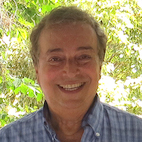
Prof. Yoav Bashan is the President of The Bashan Foundation, an international research institute devoted for global diffusion of science and the President of The Bashan Institute of Science, a newly formed environmental research institute in Alabama. Prof. Bashan is affiliated to Auburn University with the Dept. of Entomology and Plant Pathology and is also the Group leader of Environmental Microbiology at the Northwestern center for biological research (CIBNOR), a research institute of the Federal government of Mexico, since 1997. He obtained his doctoral degree from the Hebrew University of Jerusalem in Israel.
Prof. Bashan main field of research during the last 3 decades is the interactions among plant growth-promoting bacteria and plants in agricultural and environmental settings including restoration of degraded soils and water. In this context he restored several wetlands in Mexico to their original functionality and demonstrated restoration of eroded lands at the field level.
Prof. Bashan published 356 scientific works of which 207 were published in peer-review journals with an impact factor (average impact factor of the last 10 years 3.1) and the rest are chapters in books and popular scientific publications. In addition, he published 22 comprehensive websites. Prof Bashan serves as an editor and editorial board member of 15 scientific journals from 7 countries, adhoc reviewer of additional 208 scientific journals from 41 countries and 27 funding agencies from 16 countries.

Kornelia Smalla is the head of the Bacteriology & Microbial Ecology group in the Institute for Epidemiology and Pathogen Diagnostics at the Julius Kühn-Institut, Federal Research Centre for Cultivated Plants (JKI) in Braunschweig. She studied chemistry and did her PhD in biochemistry at the Martin-Luther-University in Halle. KS obtained the habilitation (venia legendi) in the field of microbiology at the Technical University Braunschweig in 1999 where she became adjunct Professor in 2006. KS has a long-term research expertise in the development and application of cultivation-independent methods to study the dynamic response of the soil and plant microbial communities to various biotic and abiotic factors. A major research direction of her group is to investigate how agricultural management systems influence soil microbial communities and in particular the abundance of beneficial bacteria and potential plant and human pathogens. Another long-term research of the Smalla group is devoted to the adaptation of bacterial communities to environmental stress through plasmid-mediated gene transfer - factors triggering the abundance of transferable antibiotic resistance genes in the agro-ecosystem being one of the most important themes here.
Kornelia Smalla is an editor of FEMS Microbiology Ecology and in the editorial board of several journals. KS published more than 175 papers and has an h-index of 48 (WoS).